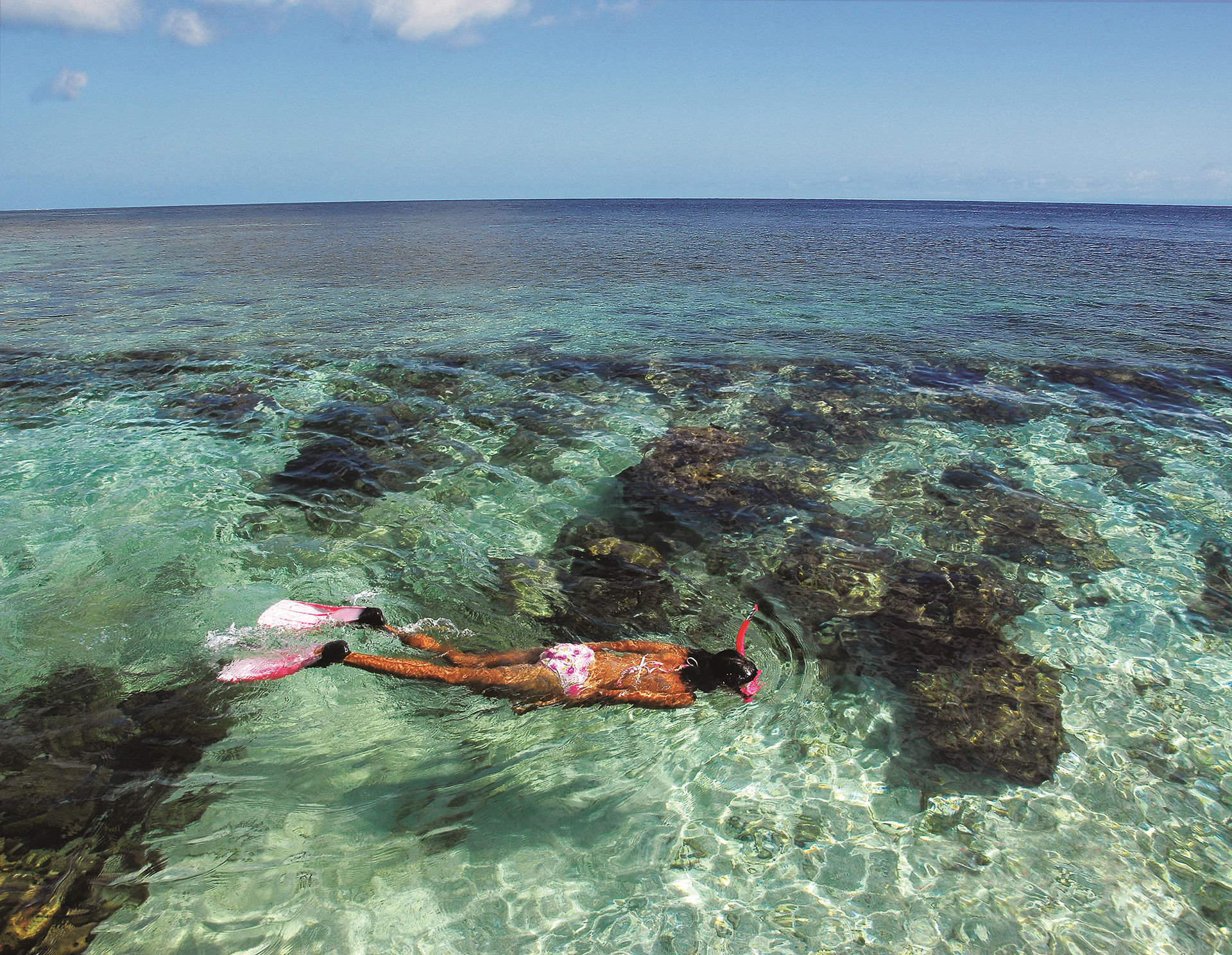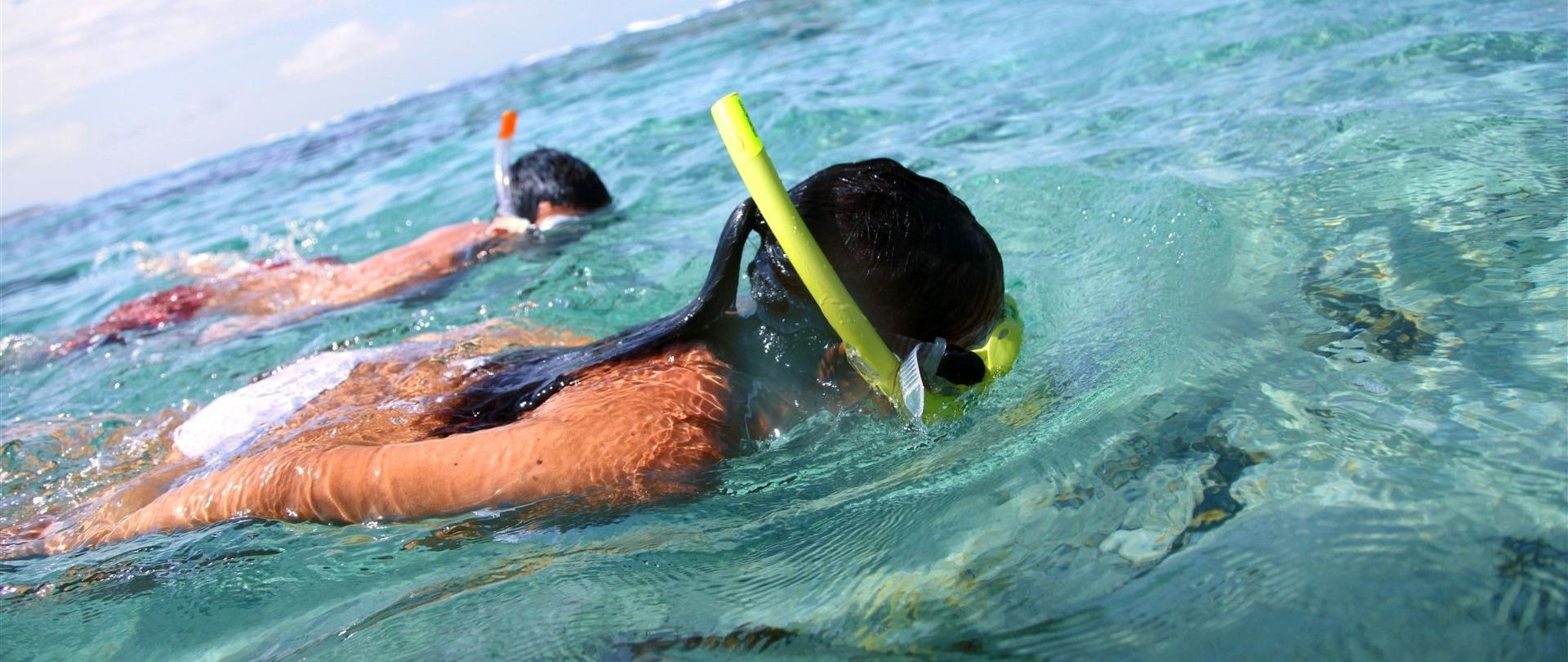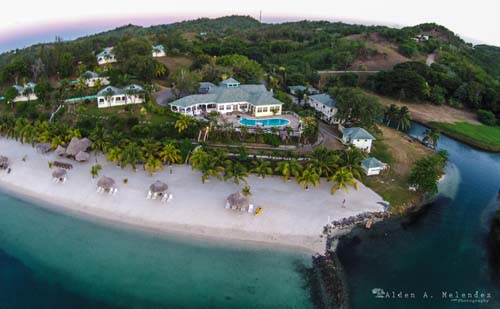
Explore From Shore or Cruise to the Edge
The Bay Islands of Honduras are surrounded by some of the richest coral reefs in the Caribbean. Here, on the southern edge of the great Mesoamerican Reef, groves of colorful corals and sponges thrive in sunlit shallows and decorate underwater walls that rise to within a few feet of the surface. Divers come from around the world to experience the abundant sea life of the Bay Islands, but these same underwater treasures can be enjoyed from the surface by free divers and snorkelers. Excursions can begin right from the beach, or aboard dedicated boats that provide easy access to the best reefs.
Highlights
- Best for: Everyone, from relaxing and beach travelers, to soft and rugged adventurers
- Best season to visit: Year round
- Weather: Tropical climate with drier winters, passing summer showers and more frequent rains from October through December. Temperatures range from the 70s to summertime highs near 90
Things to Do
- Cultural Activities
- Diving
- Hiking
- Paddle Sports
- Ziplining
Honduras Information
Snorkeling in Honduras Overview
There are excellent snorkel sites around all of the three major Bay Islands, but the greatest diversity of sites are found on the largest island, Roatan. A number of the island's dive resorts provide guided snorkel tours by boat, and also support self-guided explorations from shore.
Snorkeling in Honduras Tips
If snorkeling from shore, ask a local before you wade in. In some areas, the coral reefs begin close to shore, while other areas will require long swims to reach the good stuff. In addition to the reefs, you can find often find interesting marine life hiding in shallow grass beds. For something different, sign up for a night snorkel.
Best Places to Snorkel in Honduras
At Anthony's Key Resort you can swim with a dolphin, explore the waters around Bailey's Key, or visit the island's best sites aboard a dedicated 51-foot snorkeling boat. Entry is easy at West End Beach, where a sand slope leads to a lively barrier reef. Blue tangs, yellowtail snapper and parrotfish swarm at Fish Den. Trips from Turquoise Bay give access to uncrowded north shore reefs.
What to Pack for Snorkeling in Honduras
If you are serious about snorkeling, you might want to invest in your own equipment. Learn how to use a defog solution to keep your mask clear, and choose a snorkel with an automatic purge valve to keep the water out of your mouth. Wear a water shirt to protect your back from the sun.
Packages

Honduras
Anthonys Key Resort
Saturday arrivals preferred and possibly required during peak travel.
Book Now

Honduras
Turquoise Bay Dive & Beach Resort
Book on-line or Contact Caradonna Adventures at 800-330-6611 or email us sales@caradonna.com.
Book Now
Resorts

Honduras
Turquoise Bay Dive & Beach Resort
An all Inclusive, exclusive resort located on the Northeast shore of Roatan, private white sand beaches with world class snorkeling and scuba diving! Lush tropical garden, ocean view, and hillside room categories. Swimming pool/patio, various water sports, and on-site activities include kayak, stand up paddle board, pool table and board games. Concierge Services with well-trained knowledgeable planning staff.
Turquoise Bay Divers PADI 5-Star IDC Resort offers Valet Diving (daily gear care) and multiple dive services with fresh fruit onboard all dive trips.
Optional add-ons for Watersports Activities and Topside Activities available in the shopping cart after room category is selected.
Book on-line or Contact Caradonna Adventures at 800-330-6611 or email us sales@caradonna.com.
See Packages & Learn More

Honduras
Mayan Princess Beach & Dive Resort
Optional add-ons for Watersports Activities and Topside Activities available in the shopping cart after room category is selected.
Book on-line or Contact Caradonna Adventures at 800.328.2288 or email us sales@caradonna.com.
See Packages & Learn More
Passport and/or Visa Requirements
A valid passport is required for entry that must be valid for the length of stay. No visa is required for stays less than 90 days. The passport must have at least one blank page for the Costa Rica entry stamp. There is a departure tax of approximately $29 U.S. which should be included in your international ticket. Check the entry/exit requirements here.
Immunizations
There are no immunizations required for entry into Costa Rica, although you should check with your doctor and with the Centers for Disease Control and Prevention for other recommendations.
Culture and Customs
Costa Rica is known as the safest and most prosperous country in Central America. It is home to a large community of North American ex-pats, but also retains its distinctly Latin culture, which includes a relaxed attitude to schedules that is known as “Tico time.” Laid back is not the same as uncaring, however, and Costa Ricans are known for taking pride in their appearances and their work. A well-developed road system connects major destinations, but much of the country's central highlands remain wild and protected within national parks. Within a day's drive of beach resorts at Guanacaste lie the slopes of Arenal Volcano, the Monteverde Cloud Forest and Palo Verde National Park. Costa Rica is the eco-adventure capital of the Caribbean. Surfers come from around the world to ride famous breaks from Witch's Rock to Pavones. Coastal lodges are filled with fishermen seeking light tackle challenges with roosterfish or tugs of war with a marlin. Forests draw birders, hikers and naturalists, and there are more than a dozen rivers offering whitewater rafting thrills. More relaxing experiences await at hot springs, where spa treatments and soaks in mineral-rich volcanic water provide a soothing end to an active day.
Electricity, Phone and Internet Access
The standard in Costa Rica is the same as in the United States: 110 volts AC (60 cycles). Some electric outlets only have 2 prong sockets, so an adapter may be needed for 3 prong plugs.
Costa Rica has an excellent phone system, and the country code for dialing is 506. Check with your cell phone provider for international data and voice plans and costs.
Many resorts and restaurants offer WiFi.
Water Quality
Although the water in Costa Rica is generally safe to drink, water quality varies in some cities. It would be best to use bottled water and avoid ice.
Language & Currency
Spanish is the official language of Costa Rica, but English is widely spoken. The Costa Rican currency is called the “colon”. Check the current exchange rate here. Many businesses will accept U.S. Dollars and major credit cards are widely accepted.
Time
Costa Rica is on Central Standard Time, 6 hours behind Greenwich Mean Time (-6 GMT). Costa Rica does not use daylight saving time, so the time difference is an additional hour April through October.
Location, Size and Population
Costa Rica is located in Central America, bordering both the Caribbean Sea and the North Pacific Ocean, between Nicaragua (to the north) and Panama (to the south). Costa Rica encompasses a total of 19,700 square miles (51,100 square kilometers).
The population of Costa Rica is 4.9 Million (2015) with approximately 350,000 living in the province of Guanacaste.